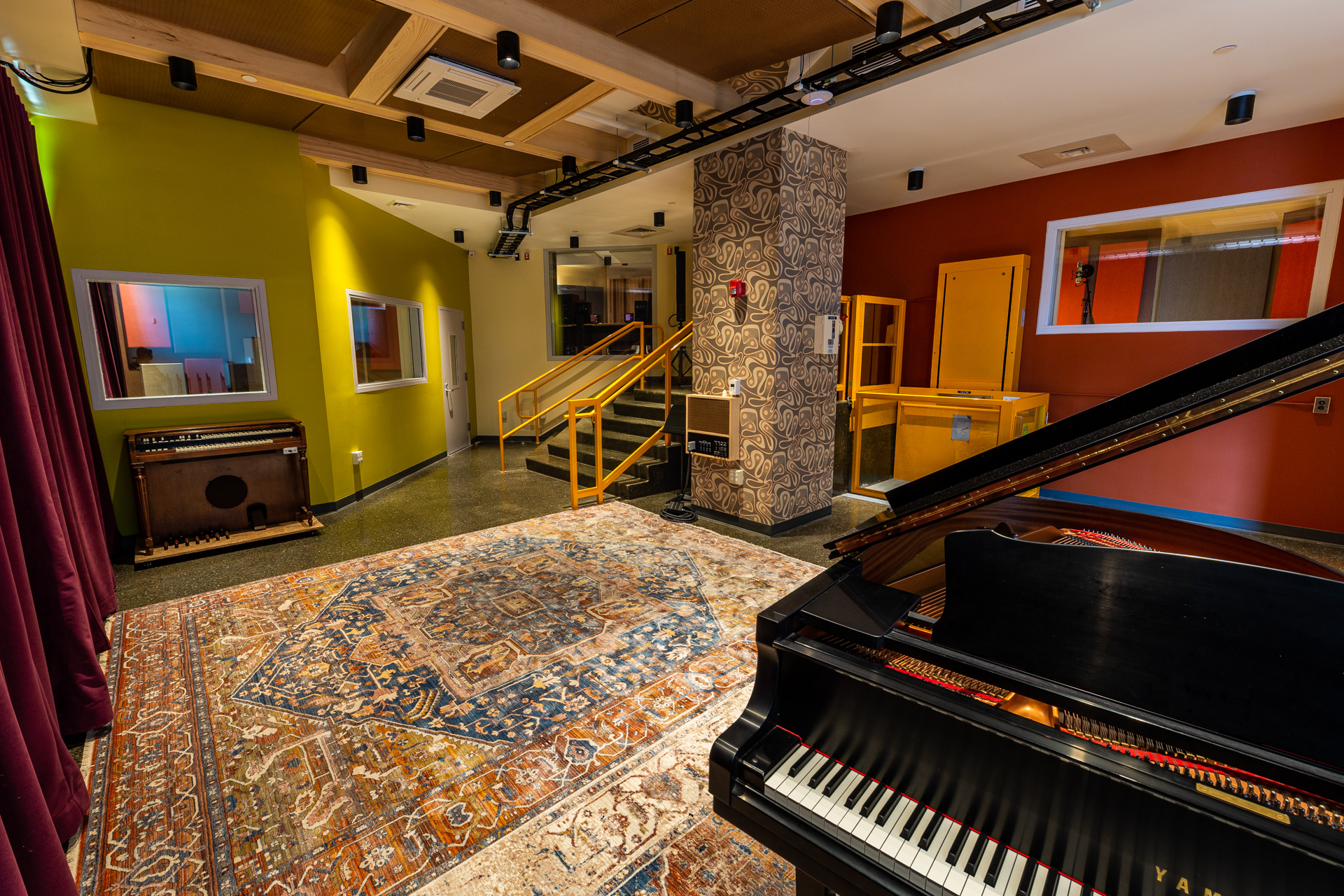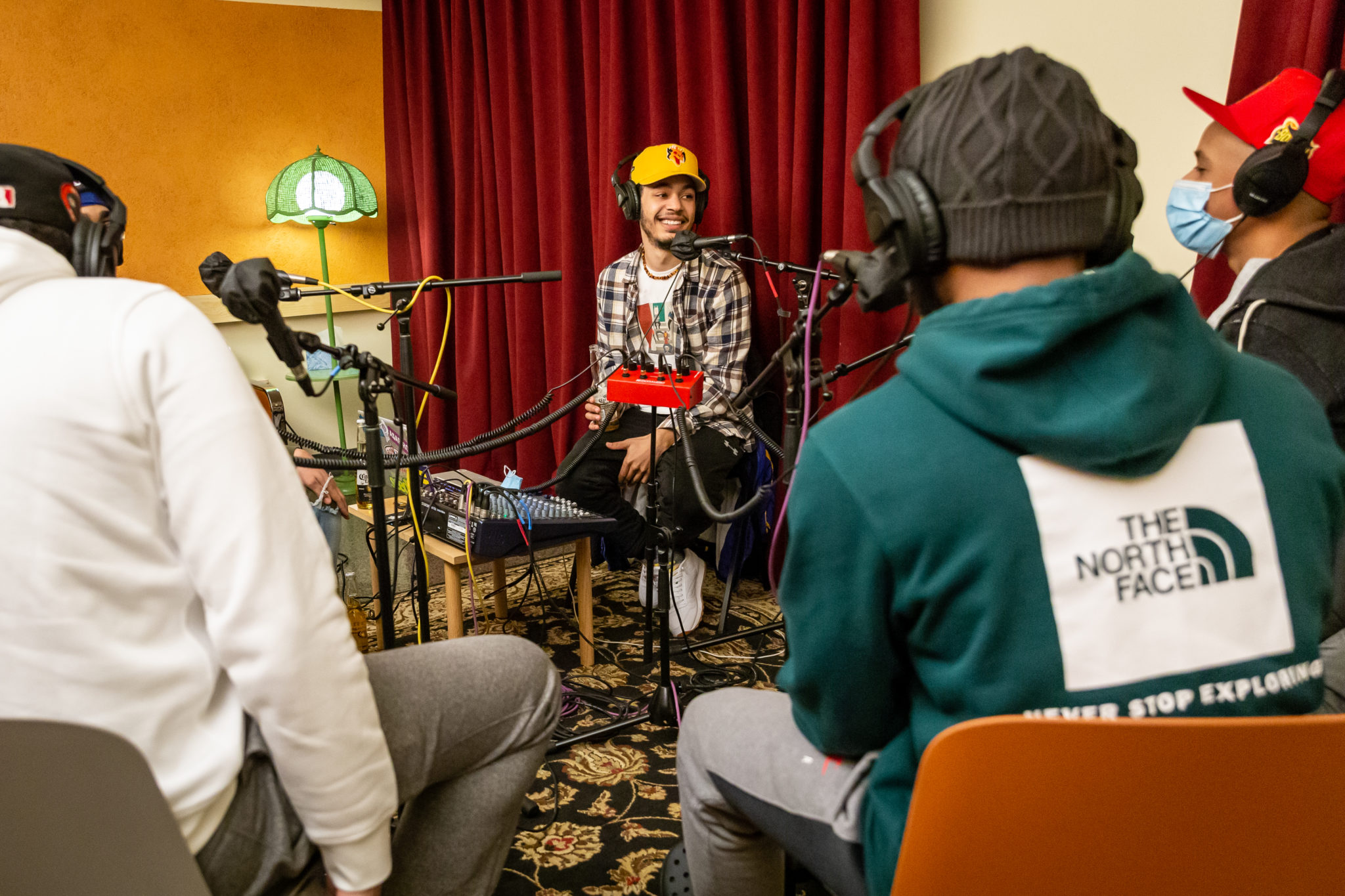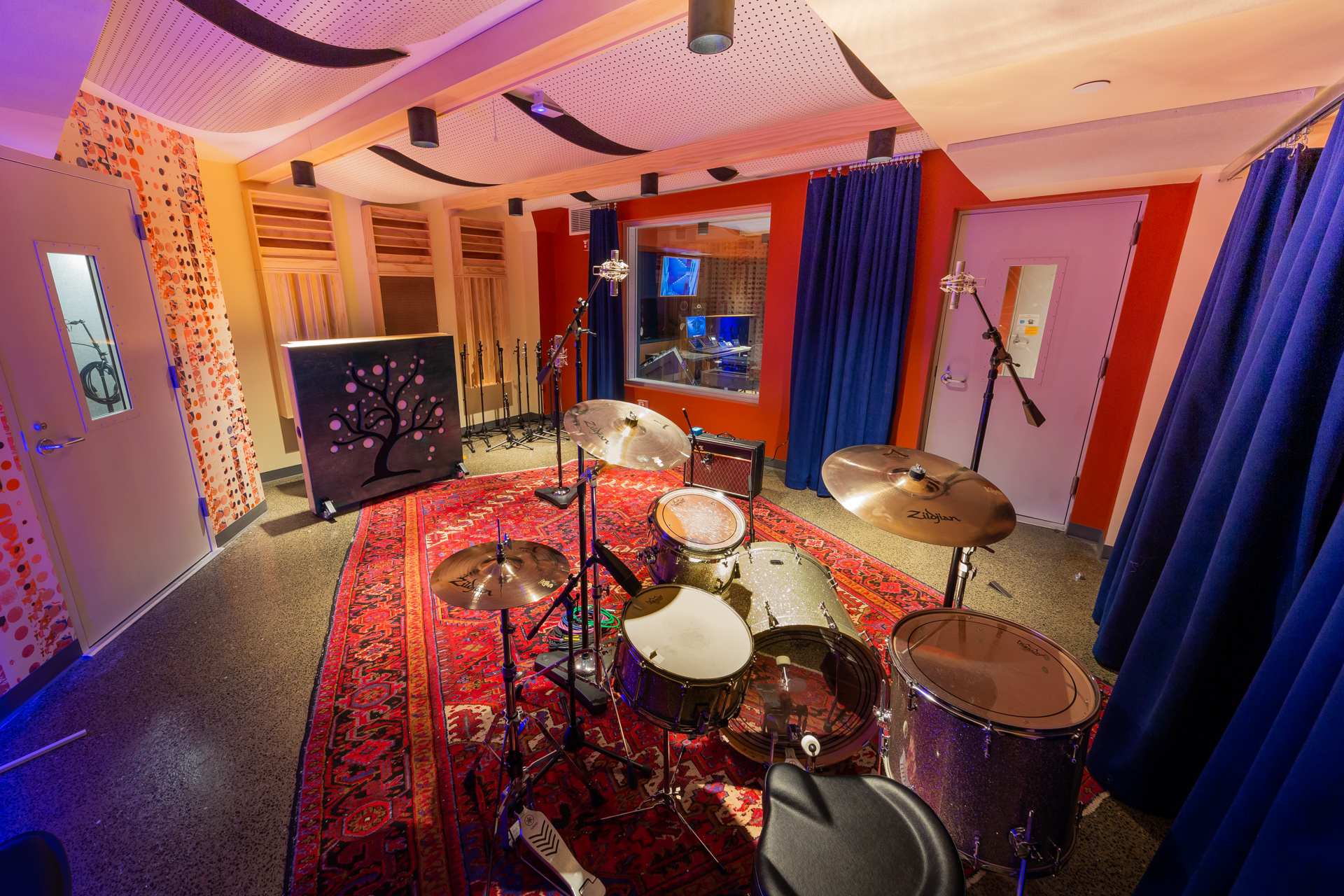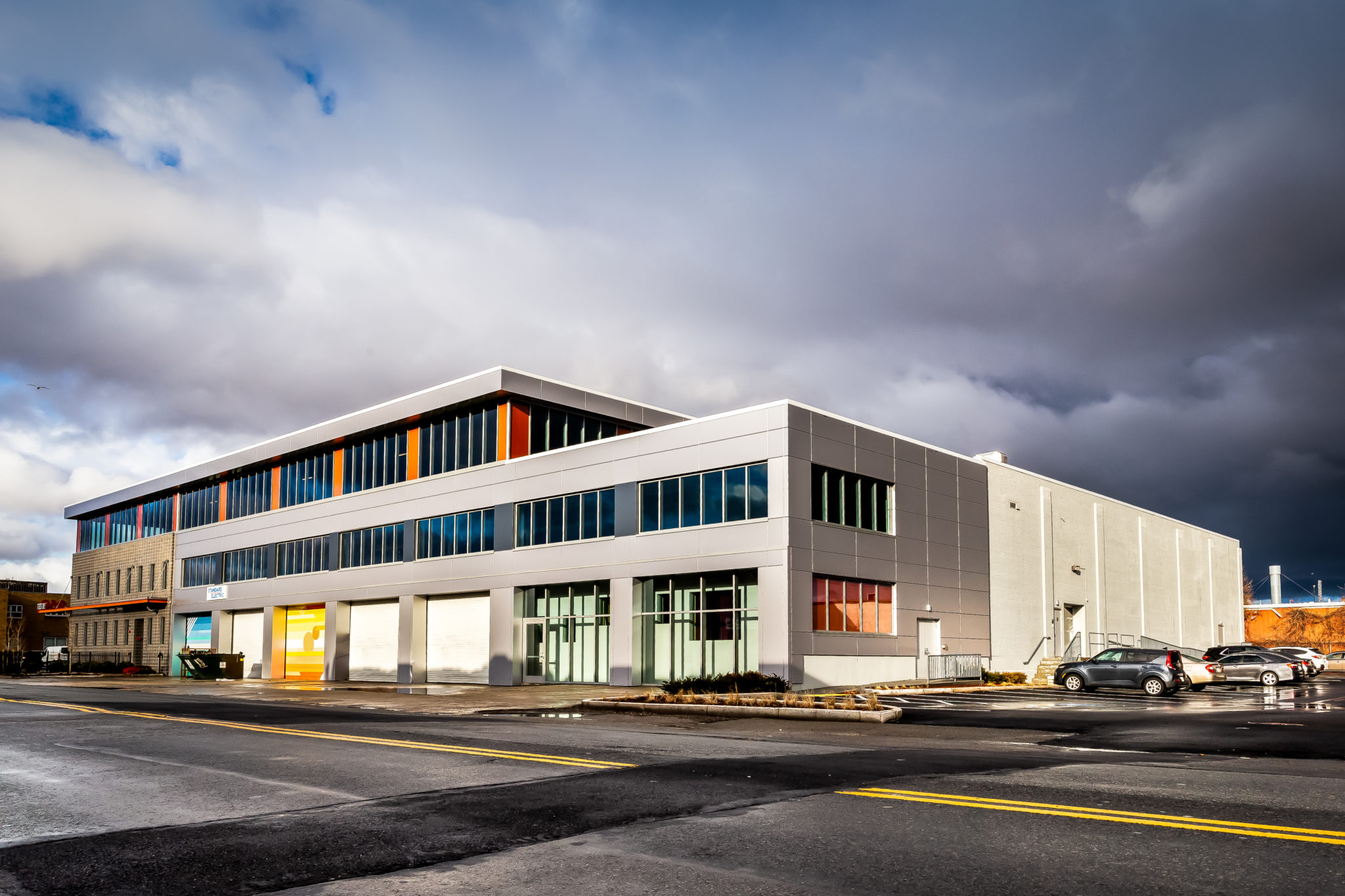The Record Co.
OVERVIEW
The Record Co. (TRC) is a non-profit 501(c)(3) community music workspace in Boston, MA. The organization began over 10 years ago with one recording studio which grew into two. When the building was purchased and redeveloped, a new shell was built for The Record Co. to inhabit an expanded space. On January 14, 2021, TRC opened their new, 12,500 sq/ft space with 20 rooms including four recording studios, fifteen rehearsal studios, and one meeting/training space. All spaces have event capabilities and were built with robust HVAC to guard against aerosol-based transmission of illnesses and to contain noise.

CONTEXT
Recording studios have historically been exclusive spaces for those with financial means and/or access to career-oriented industry professionals; they have not often been friendly to emerging artists and to people of color. In recent years access to music recording has expanded because the cost of equipment has gone down. In-home recording studios have begun to proliferate but are limited by their reliance on the benevolence of their neighbors. Moreover, as the pandemic has shown, working solely at home does not often expose people to others, and it creates barriers to collaboration.
The Record Co. provides a coworking-type space for music makers. The space is a noise-friendly environment where people can meet each other, share ideas, learn skills, and organize around shared goals. The space not only promotes noise-making, but it also provides a greater diversity of tools than most people would use at home. The different rooms, instruments, computers, and other equipment allow for a diversity of sounds to be created, all in a safe, and accessible space.
PARTNERS
TRC has built partnerships with a large community of individual music-makers. Since the organization has been closed for 1.5 years, they do not currently have a large portfolio of programmatic partners, but are in conversations with cultural organizations to bring in their programming as an extension of the space with workshops, trainings, and other events. More information about the partnerships developed through the capital campaign and construction process are below.

FUNDING
When TRC was founded, 75% of its operating budget was raised through earned income generated by its programs. After 9 months of operating in its new space, TRC hopes to become revenue neutral to net positive. Any additional funds raised will go back into programming.
Construction on the space cost $6m and is being funded over three years. $4.8m was needed for the fit-out of the physical space, and $1.2m was set aside to carry an operating loss for three years until the fall 2021 when TRC expects to be fully operational and on path to self-sustaining.
Construction costs were funded through many sources including half from private individuals, and the other half from private foundations (Barr Foundation, The Klarman Family Foundation, Mabel Louise Riley Foundation, others), and federal, state, and local government entities such as the Massachusetts Cultural Council and the MassDevelopment TDI Coworking grant program. The outstanding capital needed to pay off the construction loan is held in a donor-advised fund at the Boston Foundation.
TRC was also able to use New Market Tax Credits (NMTC) thanks to a partnership with its lender, Blue Hub Capital, and Massachusetts Housing Investment Corporation (MHIC) which sold the credits to JP Morgan Chase. At under $4M, this was the smallest NMTC deal that MHIC ever attempted, and although TRC had to spend $300,000 to create the 300+ documents needed for closing, the process unlocked $970,000 and legitimized the project; ultimately helping the organization leverage additional capital.
As part of this NMTC structure, and independently run organization The Friends of the Record Co., holds a loan for TRC, and also holds the lease with the landlord, sub-leasing the space back to The Record Co.
PROCESS
When the COVID-19 pandemic shut down the city in March 2020, TRC was fortunate to have already planned to close and had set aside funding to support operations during its dormant period. They had already decided to spend much of their construction contingency on a more robust HVAC system to add comfort and to increase zones and airflows, so tweaks to increase power and add additional filtration were minimal. TRC also added UV lighting inside the ductwork as an additional safety precaution.
After being closed for a year and a half, and then open for six weeks in early 2021, TRC has already surpassed the operating and service volumes of their previous space. They had 140 reservations in February 2020 and predict linear growth to 1,000 per month, increasing exponentially when vaccine load hits in late summer/early fall 2021.

SUCCESSES
TRC has built a model cultural organization for a specific use and context, providing affordable space for music-makers to make noise and create. TRC can solve the space crisis and provide such high-quality, affordable space to musicians because of the way the organization shares space so efficiently, opening opportunities for a wider audience.
TRC has also developed a model pro forma for the development of a cultural space by scaling its space and operations by 10x. Should TRC be able to afford the space long-term as they predict, they may be able to reevaluate their leadership model and consider new contexts and scales for their work including expansion to other places and to other disciplines.
LEARN MORE
